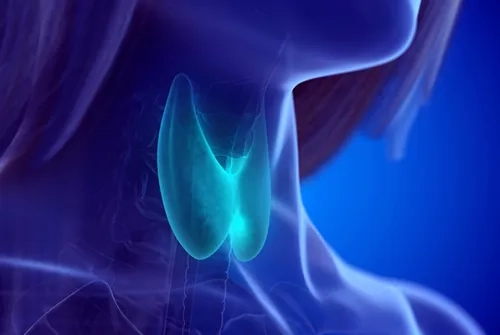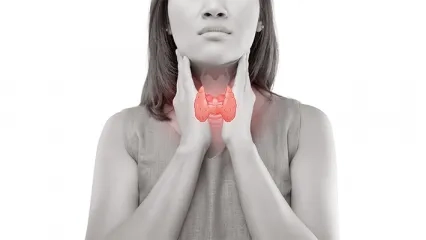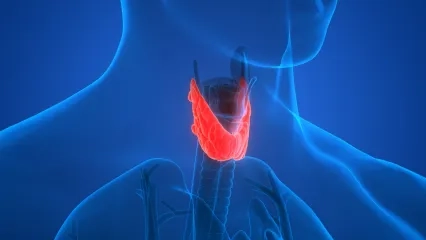Hashimoto's Thyroid Disease
The most common cause of thyroid hormone insufficiency (hypothyroidism) is Hashimoto's disease. The body produces certain proteins that damage it. These proteins damage the thyroid gland and begin to eat it. So much so that the volume of the thyroid gland shrinks over the months in these patients.
Who is Hashimoto's?
Hashimoto is a condition most commonly seen in women and often in the middle-aged group.
What are the Hashimoto Risk Factors?
The cause of Hashimoto's disease is unknown, but there is scientific evidence that smoking and stress are important risk factors.
What are the Symptoms of Hashimoto's?
All the symptoms that occur in the under-study of the thyroid gland (hypothyroidism) are present in Hashimoto's. In these patients, problems such as rapid weight gain due to slowed metabolism, inability to wake up in the morning, weakness, lethargy, drying of the skin, hair loss, constipation due to slowed bowel function, not understanding what is said due to slowed thought, and making wrong decisions are experienced.
How is Hashimoto Diagnosed?
In the blood tests performed on these patients, it is seen that the T3 and T4 values are low and the TSH value is high. In addition, the level of some proteins that damage the thyroid gland (such as anti-TPO) in the blood is increased.
How Does Hashimoto's Treatment Work?
Unfortunately, there is no proven cure for Hashimoto's. The patient is given a tablet for the missing thyroid hormone. However, this is not for treatment but to complete hormone deficiency. Although rare, Hashimoto's disease can also be associated with other endocrine organ failures (such as B12 deficiency, adrenal insufficiency). Hashimoto patients should be followed up by a physician specialized in endocrinology, and it should be kept in mind that this follow-up should continue throughout life.
This content was prepared by Yeditepe University Hospitals Medical Editorial Board.
”
See Also
- What is Calcitonin Hormone? Calcitonin Hormone Deficiency
- If the Size of the Thyroid Nodule is Over 4 cm, Be Cautious!
- How Does High Calcium in Blood Cause Complaints?
- A First in the Literature: Parathyroid Cell Obtained from Thyroid Stem Cell
- Diagnosis in Thyroid Diseases
- Assessment of Hyperthyroidism
- Thyroid Tumor (Cancer)
- Graves' Disease
- Thyroid Nodules
- Thyroid Surgery
- Assessment of Hypothyroidism
- What is the Harm of High Calcium in the Blood?
- Frequently Asked Questions in Thyroid Diseases
- Atomic Therapy (Radioactive Iodine Therapy)
- Which Thyroid Nodule Can Be Treated Without Surgery?
- She Was Relieved of Her Pain When the Missing Parathyroid Gland Was Found in The Chest Cavity
- Thyroid Storm Can Turn Life Upside Down
- Recovered From Thyroid Nodule with Needle Melting Method
- Stress Triggers Thyroid Diseases; These Occupations Are At Risk!
- Turkish Physician Developed a Novel Method for Parathyroid Transplant
- What Should Be Considered After Parathyroid Surgery?
- Parathyroid Diseases and Treatment
- They Said It Was Thyroid Cancer, But It Turned Out to Be Parathyroid Adenoma!
- The Frequency of Thyroid Nodules and Thyroid Cancer in Young People is Increasing!
- Thyroid Cancer Treatment Is Possible Without Removing The Entire Thyroid Gland
- Thyroid Storm
- T4 Hormone in 13 Headings
- Questions About Thyroid Diseases
- Thyroid Diseases
- Goiter (Thyroid Gland) Biopsy
- Radiofrequency Therapy in Thyroid Nodules
- What Is Autoimmune Hypoparathyroidism or Hypocalcemia?
- What Is The Loss of Low Calcium Level in Blood?
- What Is The Symptoms of Calcium Level Elevation (Hypercalcemia)?
- How It Is Made The Parathyroid Adenoma Operation?
- What Is Parathyroid Hyperplasia?
- Parathyroid Tumors
- What Are The Parathyroid Glands?
- The Incidence of Thyroid Cancer Has Increased! There is Turkey in the Research!
- Key Surgery Performed In Turkish Hospital For First Time
Alo Yeditepe






